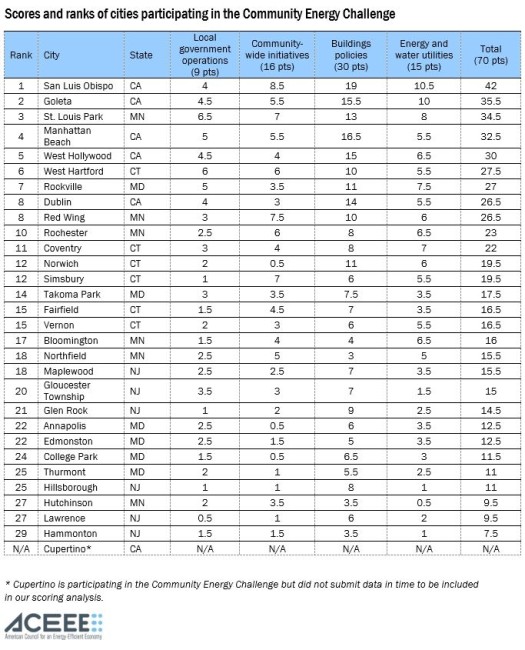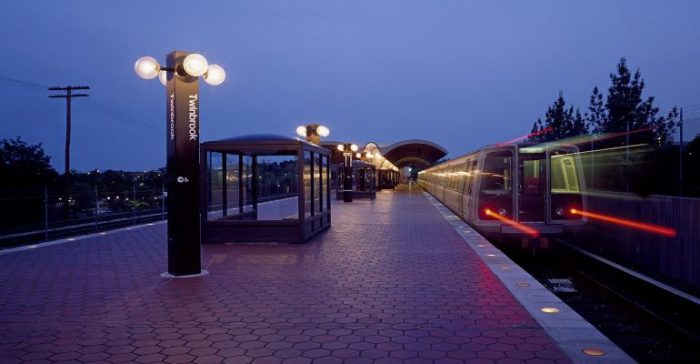aceee.org, 1/14/21.
An analysis of clean energy efforts by 30 small cities finds several leaders taking significant steps to cut energy waste and embrace clean energy—pointing the way for other small municipalities across the country to do the same. The American Council for an Energy-Efficient Economy (ACEEE) examined the cities’ efforts to make homes and buildings more energy efficient, to scale up the use of renewable energy, and to ensure community involvement in developing equitable clean-energy policies. The cities analyzed, with populations generally between 16,000 and 100,000, are in California, Connecticut, Maryland, Minnesota, and New Jersey.
San Luis Obispo (California) received the top score of the group, earning points for its policy incentivizing all-electric equipment and appliances in new buildings and for participating in a program that offers carbon-free electricity to residents. Second place went to Goleta (California), followed by St. Louis Park (Minnesota), Manhattan Beach (California), West Hollywood (California), West Hartford (Connecticut), Rockville (Maryland), Dublin (California) and Red Wing (Minnesota) (tied), and Rochester (Minnesota).
ACEEE evaluated each of the communities on policy metrics assessing government operations, community initiatives, buildings policies, and energy and water utilities. The combined scores allowed ACEEE to rank the municipalities. The analysis assessed policies and programs to make energy efficiency upgrades in homes and businesses, accelerate the adoption of renewable energy, set long-term commitments to reduce greenhouse gas emissions, and establish and enforce building codes.
ACEEE scored the cities’ energy efficiency and renewable energy strategies using the metrics from its annual City Clean Energy Scorecard, employing a modified version of its Local Clean Energy Self-Scoring Tool, Version 4.0 released in 2019. The leading small cities outperformed a significant portion of the larger cities scored each year (excepting transportation policies, which were not evaluated for the small cities).
The 30 cities volunteered to be evaluated as part of the Community Energy Challenge sponsored by ACEEE, the Sustainable States Network, Sustainable CT, Green Cities California, Sustainable Maryland, Minnesota GreenStep Cities, and Sustainable Jersey. Moving forward, ACEEE and the Great Plains Institute will provide the cities with technical assistance to support their energy efficiency and renewable energy efforts.
While each participating city is taking steps to reduce greenhouse gas emissions, the highest scorers led the way by setting goals to reduce energy use and greenhouse emissions, adopting green building requirements, and pressing for decarbonization of the electric grid. Even these leaders have significant room to grow, earning roughly half of the available scoring points.
“We found that even quite small cities and towns can take meaningful action to cut energy waste and reduce carbon emissions,” said David Ribeiro, director of local policy at ACEEE. “A number of critical tools to fight climate change—and to do so in an equitable way—are things that have to be set locally. From the largest cities to the smallest ones, they’re all going to need to step up further. We hope some of these leading cities can help show the way for their peers.”
The cities’ scores are as follows:


